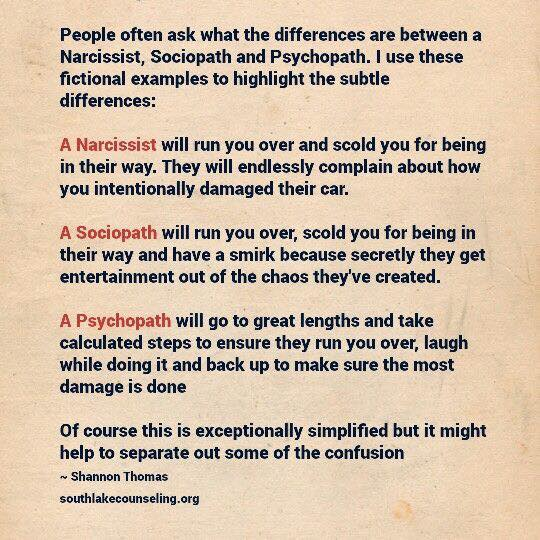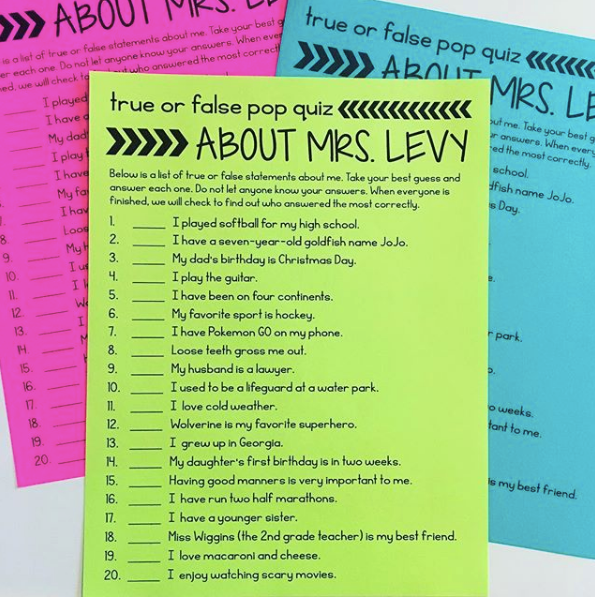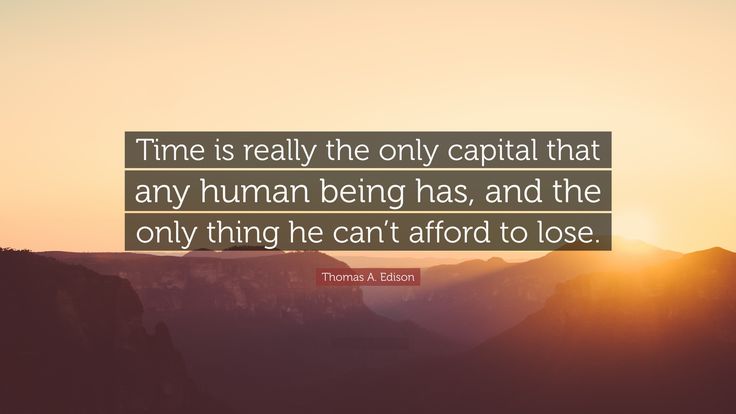Estranged mothers and daughters
How to navigate estranged mother-daughter relationships
Katie Nall is the mother of three children, and grandmother to four. But there was a time when Mother's Day was a difficult day for the Florida woman.
It's been several years since Nall's mother died, but when she was alive, Nall says they had a troubled relationship that led to her running away from home as a teenager, even landing in the foster care system for a time before living with her father during her college years.
"Growing up, I always felt like I was never good enough," Nall told TODAY Parents. "As an adult, I struggled with how to have a healthy relationship with my mother."
Nall with daughter, Elizabeth, and granddaughters, Laine, 3, and Emmeline, 1.Nall said she spent many years reading pertinent books and seeing a counselor, and finally reached a point where she "emotionally divorced" herself from her mother.
"I decided I didn't have to participate in my mother's dramas," Nall said. "I didn't have to take sides in her predicaments. I didn't have to listen to her criticism, complaining and condemning."
According to Dr. Barbara Greenberg, a family psychologist, Nall's situation is not unique.
"The mother-daughter relationship is complicated," said Greenberg. "It is fraught with pride, celebration and love, but in some cases it can also be full of envy and competition."
Greenberg says in some cases, mothers see their daughters as competitors, which can lead to emotional, verbal or physical abuse. As adults, many of those daughters become estranged from their mothers in an effort to distance themselves from the pain of negative behavior patterns.
For these women, Mother's Day can be especially painful.
Greenberg says women who have separated themselves from their mothers still often feel a "strong mother hunger," wishing for a mother figure who wants to be involved with their lives. On Mother's Day, this hunger may be greater, as greeting-card aisles and Facebook feeds are filled with reminders of a holiday designed to celebrate moms.
But Greenberg says women who are estranged from their mothers can take steps to help them deal with feelings of sadness and loneliness on Mother's Day.
1. Borrow other people's mothers
Greenberg suggests finding a way to show appreciation for other women who have been mentors or nurturers in the absence of a mother.
"We can find a way to honor those people — maybe an aunt or an older woman who you grew up around — who gave us things that our mothers were incapable of giving us," said Greenberg, who suggests taking the time to send cards or messages of thanks to these women on Mother's Day.
2. Create your own ritual
"If Mother's Day is too aversive for you to deal with," said Greenberg, "maybe that weekend you do something else every year. Go to the beach or visit a special friend."
Greenberg cautions that Mother's Day can be a long, emotional day for those without a mother in their lives, and says making distracting plans can be beneficial.
3. Focus on gratitude
"Mother's Day can be a good time to think about what you were able to achieve without a mother in your life, and to focus on giving gratitude for all of your accomplishments," said Greenberg.
4. Celebrate your own family
"If you are a mother yourself, take pride in your own role as a mother," said Greenberg, adding that women who are not mothers should take a moment to be appreciative of the friends who feel like a family to them.
"Enjoy your friends and family celebrating you," said Greenberg.
5. Plan ahead
"Don't let the day sneak up on you," said Greenberg. "Plan to stay off social media because you are going to see a lot of things about people honoring their mothers, and that can be hard."
Greenberg stresses the importance of being proactive, planning out the day ahead of time and avoiding triggering places like the greeting-card aisle or the flower shop.
6. Be prepared for questions
When well-meaning friends ask about your plans for Mother's Day, Greenberg says there is no need to go into details about your troubled relationship with your mother.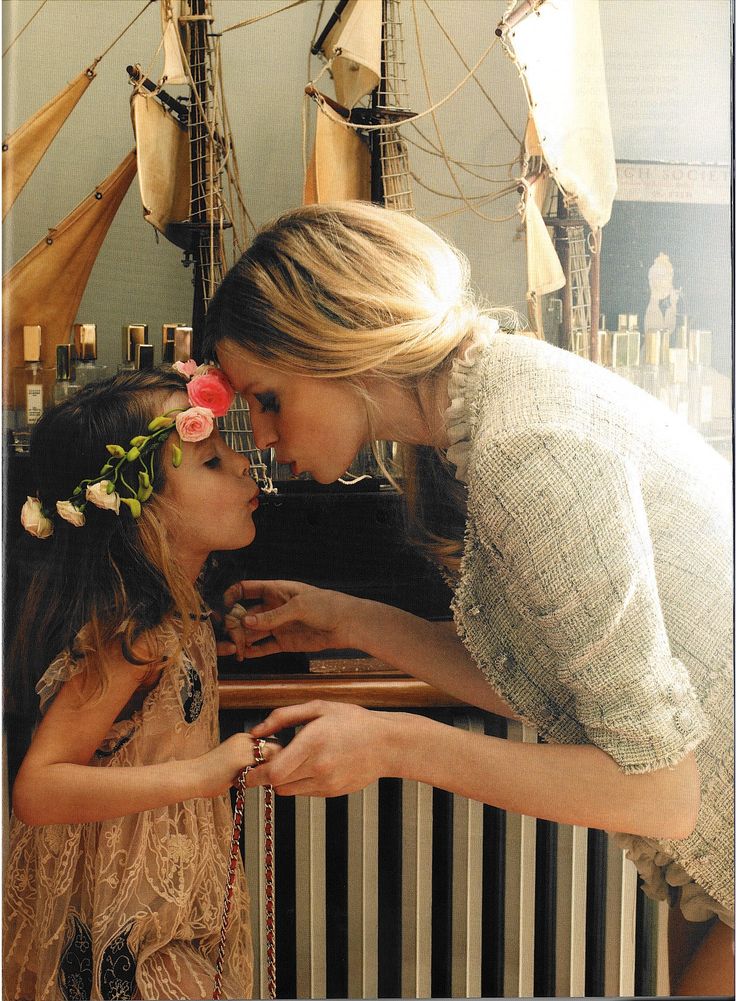
"Answer generically," said Greenberg. "You don't have to get into your story or get specific about who is coming with you that day. Just tell them what your plans are — they probably won't ask you whether or not your mother is coming with you."
Nall says as a mother and a grandmother, she has worked to break the chain of bad mother-daughter relationships and behave differently than she was taught.
"For me, I wanted peace and to be satisfied with myself — to know that I was good enough," Nall said. "I have peace now. My next goal is to have the ability to grow into a more heartfelt, loving and kind mother."
Editor's note: This article was originally published on TODAY on May 12, 2017.
Going No Contact: When Estrangement Is a Healthy Choice
The decision to go no-contact with a family member is a deeply personal one. For some of us, healing the Mother Wound is possible while staying connected to your mother. In this scenario, the healing actually creates a new, deeper connection between mother and daughter, which is a beautiful thing to witness.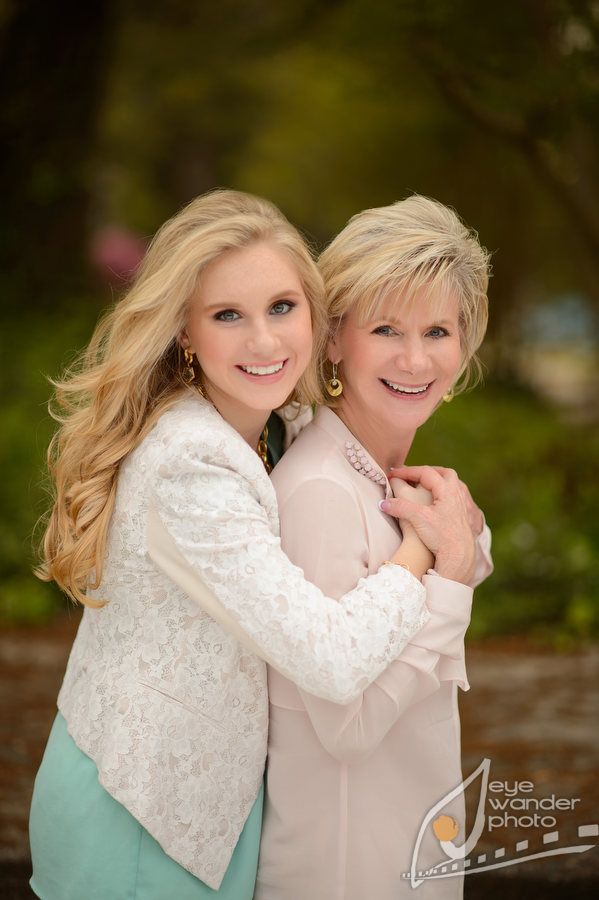 I’ve seen it happen and it’s truly inspiring. But for some of us, it’s impossible to heal ourselves and remain in connection with our mothers. Learn why going no contact and estrangement from your mother may be a healthy choice for you.
I’ve seen it happen and it’s truly inspiring. But for some of us, it’s impossible to heal ourselves and remain in connection with our mothers. Learn why going no contact and estrangement from your mother may be a healthy choice for you.
Going No Contact Is Still Taboo
It’s still considered taboo to be estranged from one’s family; especially to be estranged from one’s mother. Sometimes the distance can be brief and short-term. For others, the estrangement can be permanent. It takes enormous strength and fortitude to follow through with this.
What Leads to Estrangement?
There are so many reasons why people make this choice. But a core theme leading to going no contact is realizing that your mother’s dysfunctional behavior has demanded an enormous cost to your mental/emotional well-being and you’re simply no longer willing to pay that cost.
I believe that this isn’t something chosen in a flippant, cavalier way. Rather, it is often a choice made after years of trying every other possible avenue to preserve the connection and see it evolve to a higher level. At a certain point, you may reach a crossroads where the cost is too much, and you have to make a choice.
At a certain point, you may reach a crossroads where the cost is too much, and you have to make a choice.
It may be the hardest thing you ever do in your entire life. And it may be the single most empowering thing as well.
Daughters Who Change and The Resistance Response
Families are complicated systems. When one person stops playing their usual role in the family, the system will usually experience some degree of disequilibrium or chaos. Conflict can serve to transform the system to a higher level if the family members are willing and open to grow and learn. Unfortunately, sometimes, in an attempt to resist change, the family attacks the person who is wanting to grow. That person has the choice to stay and suffer the toxicity or to heal and leave the unhealthy system. The choice to terminate contact is often made when it’s clear that it’s impossible to heal while remaining in that family system.
Daughters often play the roles of a family mediator, scapegoat, keeper of secrets, or emotional caretaker, etc.

If a daughter on a path of growth and wishes to evolve beyond her typical role in the family, (perhaps by being more empowered, having firmer boundaries, being less tolerant of poor treatment, etc.) the degree of chaos that ensues is indicative of how dysfunctional the family system is as a whole.
If the family members are each relatively healthy, stable, and open, the family may be able to find a new equilibrium without much chaos. However, if the family members are deeply wounded or traumatized themselves, a daughter’s evolution can be perceived as deeply threatening to the family system. This chaos can be deeply unsettling and extremely hard to navigate. Support is essential.
Going No Contact: The Role of Shame
In an unconscious attempt to maintain equilibrium and resist change, family members may launch attacks against the daughter. A common and virulent form of backlash is “Pathologizing” the daughter: Seeing the conflict as a result of some form of pathology in the daughter.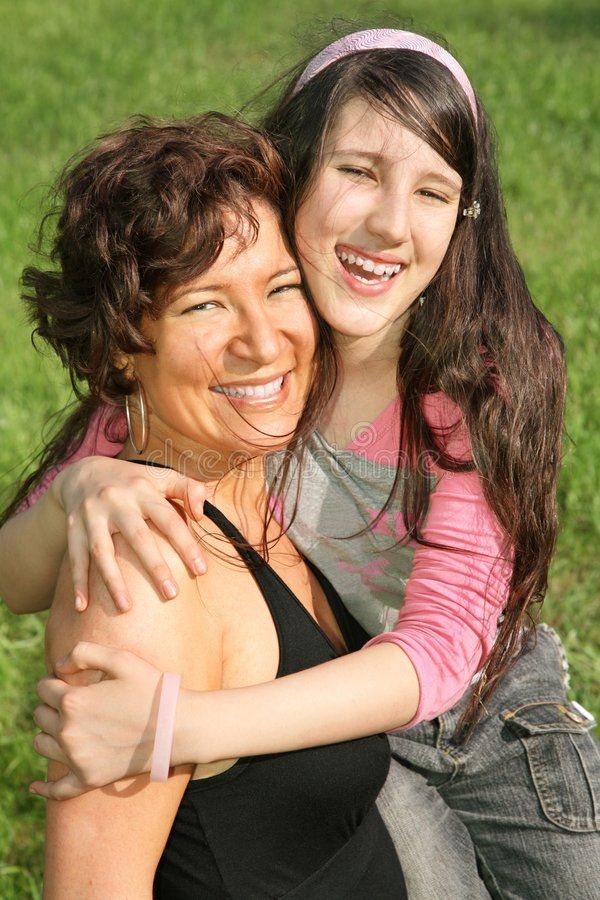 The message is, “Your unwillingness to continue in the family system in your established role indicates that there is something deeply wrong with you.” This shame-based narrative abdicates the mother and other family members from honestly examining their own behavior and taking responsibility. The daughter’s level of mental stability, her sexual activity, her past mistakes, everything about her maybe openly questioned, that is, except the role of the mother in the conflict.
The message is, “Your unwillingness to continue in the family system in your established role indicates that there is something deeply wrong with you.” This shame-based narrative abdicates the mother and other family members from honestly examining their own behavior and taking responsibility. The daughter’s level of mental stability, her sexual activity, her past mistakes, everything about her maybe openly questioned, that is, except the role of the mother in the conflict.
It’s amazing how vehemently people resist looking at their stuff and the lengths they will go to remain in denial of it, including ostracizing their own child. This is actually an unconscious attempt to resist change by projecting all the conflict or “badness” onto the person initiating the transformation of the family system. Ultimately, this is not personal at all. This is what happens when people who have not been dealing with their inner life become confronted with their disowned pain through a catalyzing event, like a woman in the family growing beyond the predominant dynamics that have kept the family in a stable state for generations.
We can’t save our mothers. We can’t save our families. We can only save ourselves. You don’t need your mother (or other family members) to understand you in order to fully heal.
The Family’s Refusal to Change Leads to Your Growth
A heartbreaking thing that happens is realizing that your mother/family is simply unable or unwilling to understand you. No matter how much you explain or how many attempts to convince them of where you’re coming from, it goes nowhere. It’s like you’re speaking two different languages. They may be unconsciously invested in NOT understanding you because it poses too much of a threat to their deeply held beliefs and values. Understanding you may cause a seismic shift to the very foundation upon which they’ve built their identities and worldview. It’s a painful thing to realize and yet it helps to create a singularity of the spirit within you.
It becomes clear that your own understanding of yourself must be enough.
Your validation of yourself becomes primary. You realize you can be OK even if others do not understand you.
What Happens After Going No Contact?
After you go no contact, your life may begin to improve in many areas. I’ve seen chronic illnesses clear up, neurotic fears vanish and life-long patterns dissolve. In fact, sometimes the challenge then becomes enduring the pleasure of your own life. With each new level of increased prosperity, increased intimacy, joy, freedom, you are reminded that your family is not there to share it with you. It’s particularly at these horizons where we may experience the turbulence of grief. There’s nothing to do but feel the grief that comes with that and allow yourself to move forward.
The grief doesn’t mean you’ve made the wrong choice. It’s actually a sign of health and healing.
Keep yourself grounded in the new paradigm that gave you the strength to leave the toxic connection.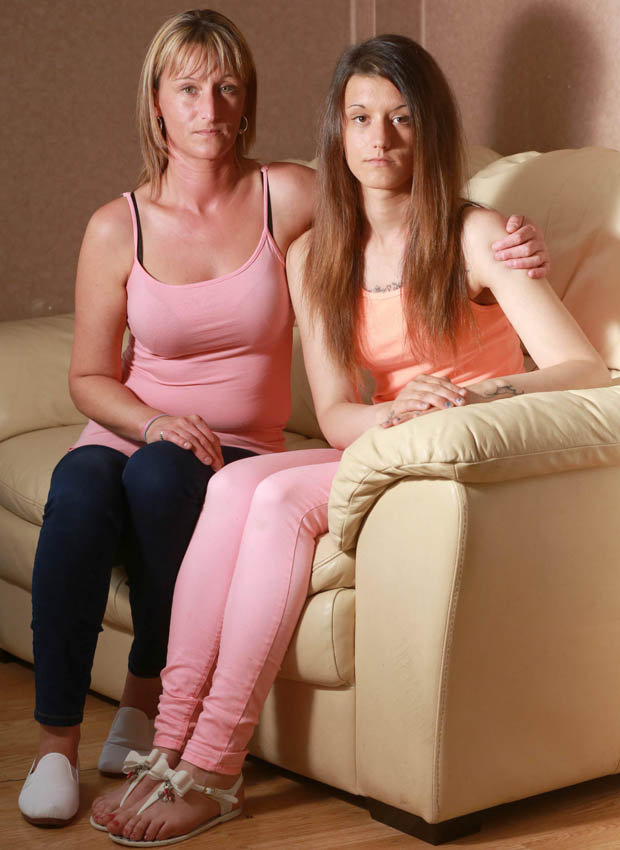 If you don’t, you could get pulled back through guilt or shame. It’s so important to get lots of support and give yourself time and space to process all the emotions that come with this choice. Ground yourself in exactly why you’re doing this and use it as an opportunity to birth you into a new paradigm in your life.
If you don’t, you could get pulled back through guilt or shame. It’s so important to get lots of support and give yourself time and space to process all the emotions that come with this choice. Ground yourself in exactly why you’re doing this and use it as an opportunity to birth you into a new paradigm in your life.
1. Estrangement Is a Launch Pad to Empowerment
You may discover something deeply profound that many people never do: You realize that you can survive your mother’s rejection of you. This can birth a level of freedom and determination within you that may initiate quantum leaps in your life. It can spur a fierce commitment to truth and carve out radical integrity that extends to other areas of your life. It stokes a fire of truth within you that has always been there, but now it can blaze fully. You feel your own source within.
2. Grief, grief, and more grief gives way to FREEDOM
Grief may arise every time you go to a new, higher level that my mother/family has never been to.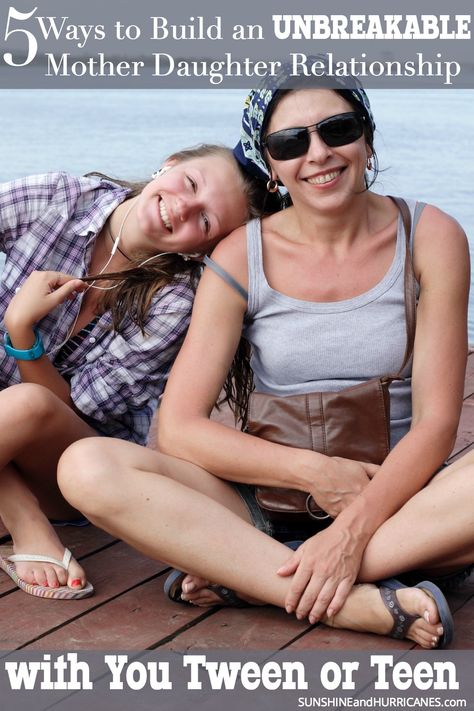 It may feel like bone-deep grief, almost tribal or ancestral, the grief of having to go forward without them. And it gets easier and easier with time. I find the more we lovingly allow ourselves to grieve, the more space is created for magic, beauty, and joy in our lives. There is something deeply sacred about the grief that comes from making this choice. It can serve as an opportunity to deeply connect to your truth and to embodying it at the deepest level. We must make meaning from this loss and use it to enhance our lives in new ways. That’s the key to long-term healing.
It may feel like bone-deep grief, almost tribal or ancestral, the grief of having to go forward without them. And it gets easier and easier with time. I find the more we lovingly allow ourselves to grieve, the more space is created for magic, beauty, and joy in our lives. There is something deeply sacred about the grief that comes from making this choice. It can serve as an opportunity to deeply connect to your truth and to embodying it at the deepest level. We must make meaning from this loss and use it to enhance our lives in new ways. That’s the key to long-term healing.
3. Your Integrity Becomes the Solid Foundation For the Rest of Your Life
“You cannot get poor enough to help poor people thrive or get sick enough to help sick people get well. You can only uplift from a position of strength and clarity and alignment.” ~Abraham
It’s okay to walk away from toxic people in your life, including toxic people in your family.
Healing inter-generational wounds can be a lonely path. But with the space created, soulful connections will come into your life. Our attachment needs are the most powerful need we have as humans. To face this level of estrangement is to confront the depth of your pain, of your humanity, and to claim the full the value of your own life. Our greatest fear is that we will be alone. But the aloneness that we fear already happened in the trauma of our families. I’m here to tell you that you’re not alone and you will find your soul family in time, people who are capable of seeing and valuing you for who you are.
4. Estranged Daughters are Spiritual Warriors
In a world where women are predominantly expected to stay silent, to cater to the needs of others, and where the darker side of mothers is not acknowledged, the experience of estrangement can be an initiation into a new level of awareness that many people never get the opportunity to experience.
Space is cleared to allow your light to shine at full radiance.
What will you do with this light blazing within you?
Estranged daughters are finding each other, creating a new mother line; a connection of authenticity, realness, and truth in each other that supports the arising consciousness in all. I’ve seen instant camaraderie between women who have walked this path. There’s more of us out there than many people realize. You’re not alone!
5. Trust Yourself and Do What Is Right For You
Estrangement doesn’t necessarily mean you don’t love your family. It doesn’t mean you’re not grateful for the good things they gave you. It just means you need space to live your own life the way you want to live it. Women who feel no choice but to go no-contact with their dysfunctional mothers create the break because it’s the only way to send the powerful message that: “Mother, your life is your own responsibility as my life is mine. I refuse to be sacrificed on the altar of your pain. I refuse to be a casualty of your war.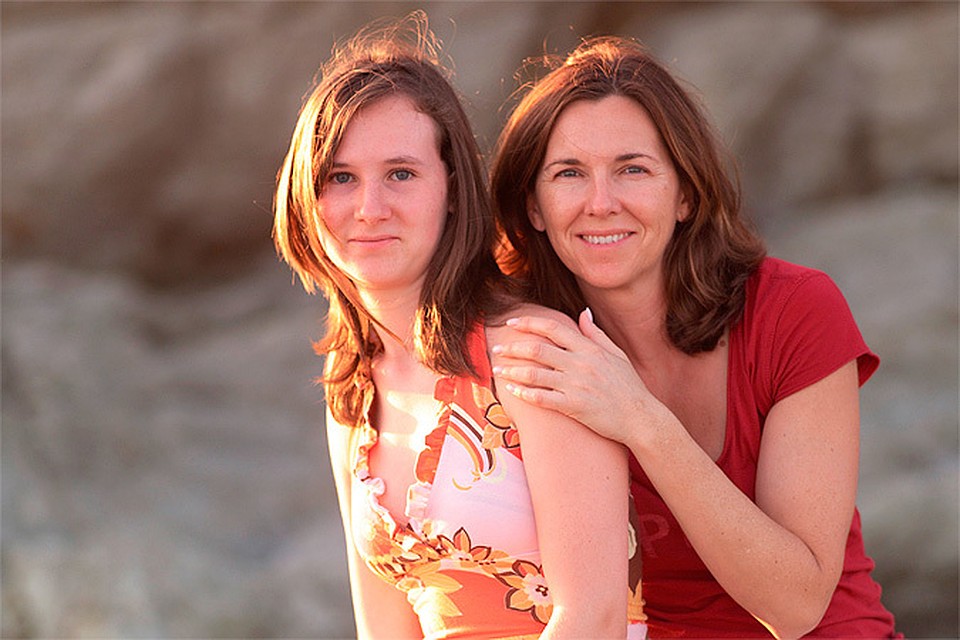 Even if you are incapable of understanding me, I must go my own way. I must choose to truly live.”
Even if you are incapable of understanding me, I must go my own way. I must choose to truly live.”
Healing the Mother Wound: An Initiation of Sovereignty
Healing the Mother Wound is the process of being initiated into your own sovereignty as a woman.
Our patriarchal culture fosters dysfunctional enmeshment between mothers and daughters. Our culture does not offer women a ritual for the natural developmental step of separating from their mothers and being initiated into their own lives. (This doesn’t exist for men either.) Healing the Mother Wound is the process that provides that necessary initiation, whether you are still in contact with your mother or not. My dream is that someday in the future, the Mother Wound will be very rare as more women detox from the patriarchal messages of “less than” and both mothers and daughters feel permission to own their full power and potential, connected in the heart while being free, separate individuals. The daughter’s individuality won’t pose a threat to the mother, because she’ll have love and appreciation for her herself as much as for her daughter.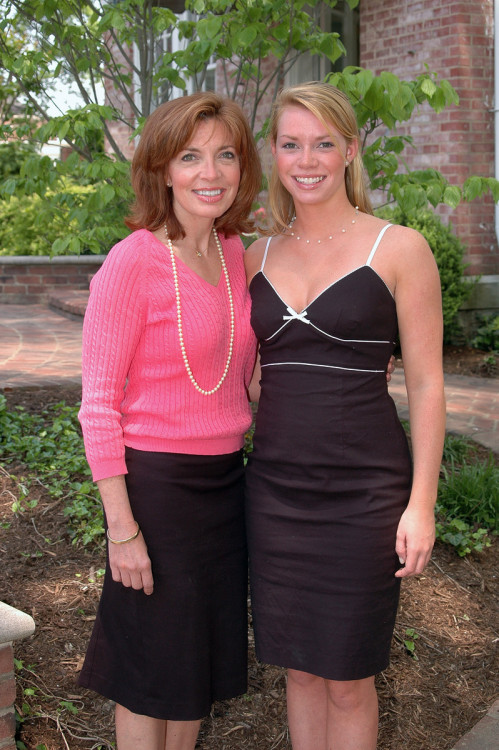
As you heal the Mother Wound, you create a new world for yourself, for the women of the future, and for the earth itself.
Art credit: “Under Syrian Skies” by Suhair Sibai,
How the housing problem separated mother and daughter
Raising children
Inna looked at her watch and sighed deeply. The hands moved inexorably towards midnight, counting the last minutes of the day. Her birthday. Inna really hoped that for her daughter this would be an occasion to call her or at least write a congratulatory text message. Alas, the hopes were in vain.
- Photo
- Highwaystarz-Photography/iStock/Getty Images Plus/Getty Images
The rift with my daughter lasted for almost a year. The reason was the notorious housing issue. Lena suddenly expressed a desire to live separately. Inna did not mind: her daughter is an adult, she graduated from the institute, provides for herself and does not need maternal control. However, as it turned out, Lena was not going to fork out for rent.
Inna did not mind: her daughter is an adult, she graduated from the institute, provides for herself and does not need maternal control. However, as it turned out, Lena was not going to fork out for rent.
“Is it not very fat for you to live alone in a three-room apartment? - without unnecessary politeness, the daughter asked. - This three-ruble note will make two odnushki in a residential area, I already found out. So let's sell - and we're leaving."
These words made Inna dumbfounded. Living separately from an adult daughter is normal, but exchanging an apartment that she inherited from her parents is a completely different matter. Inna's whole life was connected with this small cozy three-ruble note in the city center. She was brought here from the maternity hospital, from here she went to school, then to college, ran on dates, went to work. And here she raised her daughter. She gave birth to Lena late, on the threshold of her fortieth birthday, when she realized that plans to start a family in the foreseeable future were not destined to come true, and the end of the reproductive age was not far off. She gave birth, as they say, for herself. Her parents supported her in this decision and actively helped in the upbringing of the child.
She gave birth, as they say, for herself. Her parents supported her in this decision and actively helped in the upbringing of the child.
While mom and dad were alive, Inna did not worry too much about her failed female happiness, because she felt a lot of love and care from them.
The main thing is that she has a daughter, with whom they will be as friendly all their lives as she is with her parents.
Her father and mother left one by one when her daughter graduated from the institute. In the absence of her parents, the apartment seemed unexpectedly large to Inna, and when she came home from work, she could not find a place for herself. Once I shared this thought with Lena - and in response I heard those very words about the exchange of the family nest: it turns out that the daughter has already thought everything through and decided for herself.
Frankly speaking, Inna was not ready for such a statement of the question, because she had never thought about it. Rather, at the dawn of her youth, during the period of her first stormy romance, she was going to move out from her parents, but not to exchange an apartment, but to rent some affordable housing. She reasoned simply: the apartment was not earned by me, which means that it is not for me to dispose of it. The romance ended before these plans were destined to materialize. Then Inna wanted to live separately in order to prove her independence to her parents, but then her mother became very ill, and for the sake of caring for her, these thoughts also had to be pushed aside. Well, when Lena was born, she didn’t want to leave anywhere: she, a single mother, could not do without parental help in caring for the baby.
Rather, at the dawn of her youth, during the period of her first stormy romance, she was going to move out from her parents, but not to exchange an apartment, but to rent some affordable housing. She reasoned simply: the apartment was not earned by me, which means that it is not for me to dispose of it. The romance ended before these plans were destined to materialize. Then Inna wanted to live separately in order to prove her independence to her parents, but then her mother became very ill, and for the sake of caring for her, these thoughts also had to be pushed aside. Well, when Lena was born, she didn’t want to leave anywhere: she, a single mother, could not do without parental help in caring for the baby.
- Photo
- Getty Images/Image Source
And when her grown-up daughter unexpectedly demanded her share of the apartment, Inna realized that the move would have a huge impact on her quality of life, and not for the better. She, already a middle-aged woman with a heap of sores, will have to travel to work from the outskirts of the city, losing time and health in endless traffic jams, and now it’s only 15 minutes to the office at a leisurely pace. Two best friends, just like her, single women, also live nearby. Yes, and I really did not want to leave this apartment, where her whole life had passed and to which she literally became attached to her soul.
She, already a middle-aged woman with a heap of sores, will have to travel to work from the outskirts of the city, losing time and health in endless traffic jams, and now it’s only 15 minutes to the office at a leisurely pace. Two best friends, just like her, single women, also live nearby. Yes, and I really did not want to leave this apartment, where her whole life had passed and to which she literally became attached to her soul.
“Let's not sell it, okay? she suggested to her daughter after much deliberation. - I am soon 60, and at this age it is not easy for a single woman to change her place of residence: in fact, this means the loss of both work and the usual social circle. You can stay here too, right? I don’t climb into your life, I don’t torture you with control. But when you have a family, my help will not be superfluous at all. Besides, one day this apartment will still be yours. But, if you really want to live separately, I can help you rent an apartment.
For example, I will give you my salary and live on a pension.
”
Lena, after listening to her mother, grimaced and rapped out:
“Well, everything is clear: your own well-being is more valuable to you than mine. You will live alone in a large apartment, and you offer me to rent some kind of birdhouse - wonderful! Okay, mother, I'll leave, but believe me: I will never forget this and I will never forgive you. And do not count on me in old age: you have denied me my own housing, and I do not intend to serve you a glass of water.
Further conversations and persuasion were pointless: the daughter did not want to listen to anything. A few days after that conversation, she left for rented housing, leaving neither an address nor a new phone number. She cut off all contact with her mother. She knows about what is happening in her daughter's life only from her page on the social network. Inna sometimes leaves messages there - they remain unanswered. That is why the woman was so looking forward to her birthday: for some reason it seemed to her that on this day her daughter would definitely appear. Didn't show up.
Didn't show up.
... Sitting in the corner of the sofa with her legs tucked in, Inna looked around the living room with a dreary look. Uncleaned dishes stood on the table: she celebrated her birthday with her bosom girlfriends. Those, of course, noticed that the birthday girl does not find a place for herself and constantly glances at the phone. The holiday did not work out, the friends decided not to stay too long, but she did not hold them back. From time to time, scrolling through the last conversation with her daughter in her head, Inna smiled bitterly: she kept her apartment, but ruined her life. But not at the moment when she refused to exchange, but much earlier, when she did not teach her only child to reckon not only with her own interests.
Yaroslava Rybkina
Released. Meeting of daughter and mother separated by prison for 9 years
Not a single staged shot. In 20 minutes we fit several days of Valentina Aleksandrova's life. The last moments of her imprisonment, her release, the road home to her 12-year-old daughter Masha, whom she had not seen for all 9 years of imprisonment. And the first meeting of separated mother and daughter.
And the first meeting of separated mother and daughter.
This story began a year and a half ago. I went to a strict regime colony in Shymkent to choose a heroine for a photo report about a prisoner's meeting with her children after her release. And I found Valentina Alexandrova from Uralsk, sentenced to 9years for selling drugs.
All mothers-prisoners have one misfortune: convicts are separated from their families not only by walls and barbed wire, but also by distance. Children stay at home or end up in orphanages in their hometown or nearby, while mothers serve their sentences in completely different regions. Infrequent dates legally available become impossible due to financial reasons. Thus, the connection between mother and child disappears almost completely, sometimes for the entire period of punishment.
Long-term isolation destroys family ties and negatively affects the psychological state of female prisoners. After serving their sentences, they are hard to adapt and most often again embark on a criminal path.
Then, in December 2014, I failed to bring Masha to her mother in the colony. The leadership of the orphanage, where the girl grew up all these years, was negative. And they can be understood - Masha grew up practically in family conditions. The idea of sending a teenager to a colony, even for a couple of days, even to visit his mother, seemed unsuccessful to many.
Time has passed. In March 2016, Valentina called me and told me that she was being released early. She understood that when she returned home, it would not be easy for her to see her already 12-year-old daughter. And asked for help. We went to Valentina in the colony in order to live together with her during these few difficult days. Liberation, the first minutes of freedom, the way home, the first steps in an abandoned house. And a meeting with Masha.
There are some details left behind the scenes of our trip. Immediately upon leaving the institution, Valentina was given a bank card with her salary accumulated over the years of work in the colony. Alas, it turned out that the card needed to be activated a year ago - the pin code did not work. In fact, Valentina was without money.
Alas, it turned out that the card needed to be activated a year ago - the pin code did not work. In fact, Valentina was without money.
In the same place, at the exit, she was given a temporary certificate. The difficulty turned out to be that on the way to Uralsk she would have to cross the Russian border, and this is impossible to do with such a document.
Valentina didn't even have the opportunity to contact her relatives - she didn't have a cell phone.
All she had in her hands was a ticket for a second-class carriage.
With that, we set off on the road. In Aktobe, we had to change to a taxi to go around the Russian border. So we reached Uralsk in 6 hours. There are cases when other liberated people traveled this way in two days, traveling by hitchhike and on foot.
We must understand that our heroine is an exceptional example of luck. Others have to get home without money, without a cell phone and with a temporary ID. It so happens that these people, having served time, realizing that they are released with the mark of a criminal, face many similar obstacles on the way to their families.
